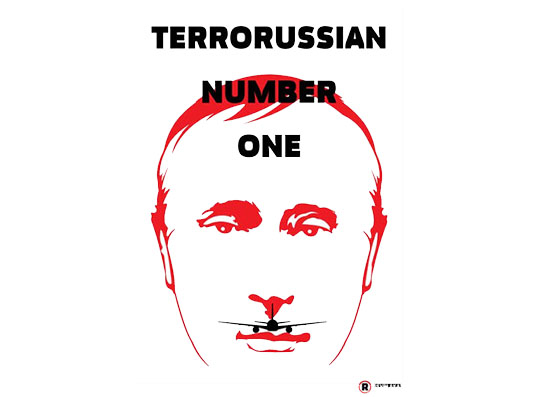“Listen, whoever comes to you with this Barzini meeting, he’s the traitor.”
Don Corleone, The Godfather
I condemn the infamous series of terrorist attacks in France, before all else. As a Turk, an ordinary citizen in a country that has been suffering from terrorist activities for more than three decades, I deeply understand those people who lost their beloved in such a monstrous attack. Apart from all analyses, comments, condemnations and all, I still hardly understand how human beings can turn into such vile creatures to commit such a massacre.
I remember a statement by a Turkish intelligence officer about suspicious situations, roughly meaning: “If you do not understand who is the perpetrator, look for who benefits the most.” Clever indeed, almost a cliché, and when I do so I see a vague yet intriguing scheme.
As I referred to in my previous article, “Islamization” of Chechen resistance cost Chechens their war of independence: dubious leaders like Basayev defiled the international image of Chechen freedom fighters, which eventually ceased the international support and a Putin-backed government was able to be established. Rumours of a Basayev-GRU relationship, especially during the Abkhaz-Georgian War, are thought-provoking, and when considered together with the fact that islamist movements made Chechens lose their support, one can even think that likes of Basayev were intentionally placed by a Russian agenda. And now, when I try to see ISIS, or ISIL as a whole, I feel there are some similarities.
ISIL’s core consists of “angry sunni Arabs,” mostly supporters of the pre-American intervention regimes. This becomes clearer when you listen to Raghad Hussein, Saddam’s daughter, expressing her pleasure for ISIS victories, when you consider stories that claim Raghad directly supports the terrorists along with her father’s “loyalists.” It is no news that Saddam was aligned with Russia rather than the “free world.”
And how does Russia benefit from ISIS?
First, ISIS strengthens Assad’s position: splitting the Syrian opposition in two, and attacking Assad regime’s enemies. The organization is so cruel and infamous, causing so much shock, that even a dictator like Assad seem “preferable,” a “lesser evil,” especially in western eyes. There are also allegations that when Russian intervention took place, they bombed the non-ISIS Syrian Opposition, not ISIS.
There’s another dimension: bombings and attacks in European cities by ISIS cause public outrage and strengthen Euro-skepticism and the far-right parties that are in a curious relationship with Putin. Even anti-Russian Euro-skeptics, like the new government of Poland, undermine the unity and deterrence of EU.
Moreover, I do not believe that the Ankara bombings during a pro-Kurdish rally on 10th October that claimed lives of 105 people simply coincided with Syrian Kurdish Salih Muslim’s meeting with Deputy Foreign Minister of Russia. There is also an interview by Muslim which should grab our attention. By the way, according to the press, Putin was the first one to call Turkish President Erdoğan to offer condolences, hence the epigraph.Crimea is the new Czechoslovakia, which should not be offered as a sacrifice to the hunger of a tyrant, whose hunger just grows fiercer the more he is fed
How does Sergey Markov, Co-Chairman of the National Strategic Council of Russia link Russia’s invasion of Ukraine to the Syrian crisis in his post? He says the West should give up with the Ukrainian cause and focus on the crisis in Middle East. Can it be counted as another benefit of Russia from ISIS?
Answers may vary, and my implication that Russia somehow backs ISIS may be wrong. But I am sure that Crimea is the new Czechoslovakia, which should not be offered as a sacrifice to the hunger of a tyrant, whose hunger just grows fiercer the more he is fed. The “free world” should understand that “terrorist” activities in Ukraine, Türkiye, or the Middle East are not separate cases but related to each other, which require a firm and equally aggressive endeavor to be eradicated.








